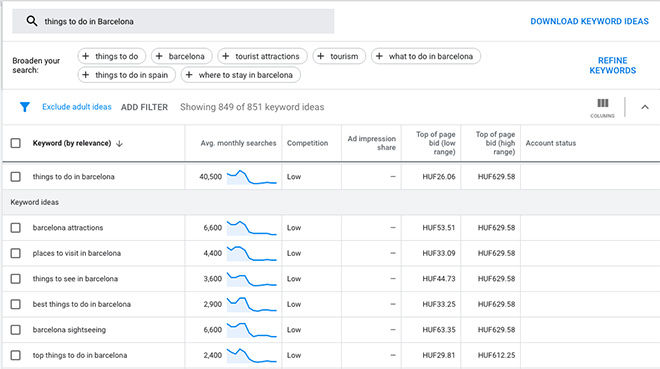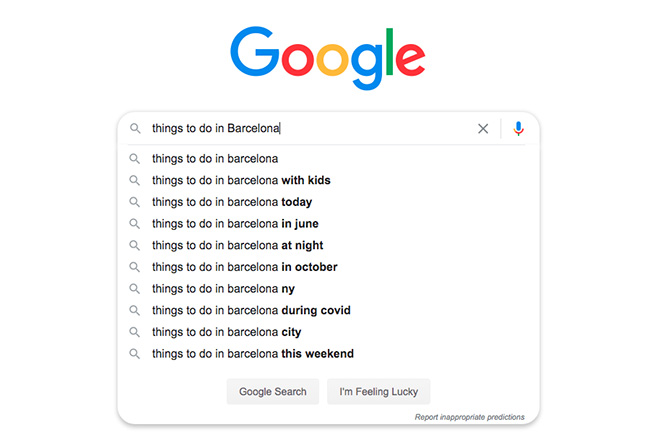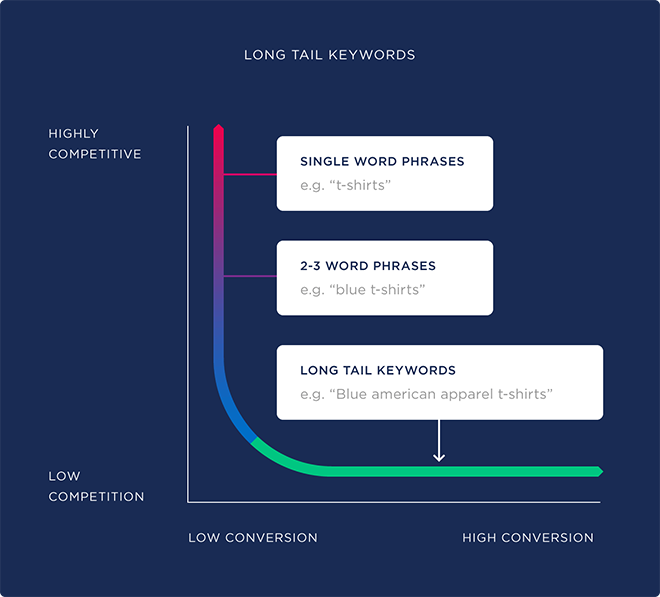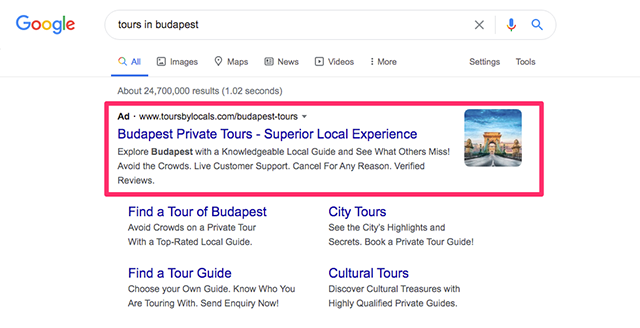ALL COUNTRIES:
December 2, 2020 @ 11:02 AM By Rinki Sharma

When talking about creating your online presence, whether be a website or social media pages, and ranking high in web searches, you really need to be starting at the beginning and find out the right keywords that are going to take you to the top. Here is what I think are the best 6 simple and effective keyword research tips for small business owners to start with.
Keyword research is basically finding out the right words = keywords that allow you to be better ranked in search engines. This is a major simplification but it is sort of a definition, as well. So before we get deeper into the keyword research tips, I suggest you take a sneak peek online just to get familiarized with SEO keyword research and get your picture on the subject.
But getting back to my list of 6 simple and effective keywords research tips for small business owners, we are going to start from scratch. Let’s say you have a small tourism business and you want to make it grow and your site to be shown on the first pages of searches. Where do you start?
Usually, when dealing with small businesses we have the constraint of a small budget and we have certain jobs that we can do ourselves and save some money. Creating the primary list of keywords is such a task. Before we can even begin to dream about showing up on the first ranking pages for Google…we need to put ourselves in the client’s shoes and think as they would.
What would you write in the search bar to get the service you have to offer? Let’s return to our example and say you are doing effective keyword research and SEO for your travel website. My advice is to take your business to pieces…small pieces and write down all niches and important, defining characteristics of your business, all services, all products, everything. Now you have the basic.

This qualifies as the first step in effective keyword research. Put down those words that best describe your business and be specific. But don’t just stop at the first 5 or so words you think of…be creative, brainstorm if you must! Actually, you must! As it will definitely improve and broaden your horizon!
Fair warning! This only steps one but, but it is in fact, the one step you cannot do without. This will be the stepping stone for all future marketing campaigns, site and listing optimization, landing pages, pay-per-click campaigns, and so on. But let’s not get ahead of ourselves.
Now we have a list of quality primary keywords that best describe what our business is about. But you cannot just throw them in the site willy-nilly! They will have to be used in a natural, conversational-tone way! I think this aspect is something to always keep in mind as you are dealing and addressing people first and then search engines. And one more thing: do not hesitate to just check what Wikipedia has to say about this subject, it might prove to be very useful.
We have already created our shortlist of keywords. But as you can imagine, this will not be enough. What other SEO keyword research tips is you have to do now to get to one of the keywords search tools and dig deeper.
To be honest, there is a lot of keywords search tool and I recommend reading a bit and trying a few to see which one you like best and which has the most to offer. To name just a few, you can start by using Google Keyword Planner, Moz Keyword Explorer, or WordStream Keyword Tool, but don’t stop here. There are a lot of them and keyword research tools are very useful not just for diversifying the words from the primary list.

What else do they provide? Well, you will find out not just keywords but also search volumes and you can choose which words would help you get a better ranking and higher or lower competition, for example.
Furthermore, you can use this data and information to create a better SEO strategy for your business and check your competition as well, just to see how you’re standing. If you’re curious about it, I have a suggestion: Check this article on how to analyze your competition and improve your ranking!
Here is another useful tip! Google is really your friend when you’re trying to think like your clients.
How should you proceed at this stage? Type your keyword in the search bar and let the auto-suggestions guide you! You will actually see what everyone else is typing when researching. It will give a lot of new ideas, new options, and expressions. You need not use it all but; use the parts that best define what you offer.

And even more, I have another great tip for effective keyword research: If you’re anything like me, you type in the research bar questions like What is…? How to….? Where do I….? And a lot of others!
So my suggestion is to use this inquisitive tool to better understand what and how people are searching! And there is one tool that I particularly like to use: Ask the People! Honesty I love it: you type in the keyword and you get a comprehensive list of questions and prepositions, comparison words, and you can just dig into the research. Do not be shy and use it because it is exactly what people are asking online and you want your business to be the answer.
By now you have already found out your primary keywords and hopefully are using them, placing them on all your homepage, blog page, and landing page. Analyzing the data from your keyword search tools is important.
According to David Kovacs, founder of Travel SEO, “now you will have to decide if you go for competitive keywords or for something less obvious, some niche-oriented words and phrases. In the beginning, the long-tail keywords might help you bring traffic as these keywords are not that competitive as others”.

One important mention: From all the options for long-tail keywords, and there will be plenty, always keep in mind, what your strengths are and use those words. And, as always, when integrating keywords into your website, always make sure to sound natural, user-friendly, and informative.
Yet another simple and very effective keyword research tips are to do your homework for pay-per-click campaigns. This marketing tip is without a doubt a sure way of getting more traffic to your website and much more. I suggest you have read this informative article regarding the benefits of PPC campaigns, how they can boost your ranking, and see why it is important to engage in it.

But before we get ahead of ourselves let’s get a bit into the intro part of keywords. It looks perfectly obvious that using the right keywords is going to bring you traffic and furthermore, clients. And since you are going to beat your competition for the first ranking in search engines, you’d better make sure you bet on the right ones. The ones that bring you traffic, without costing a fortune! And remember that you are not in search of clicks but customers! Therefore, pay attention to your keywords, and don’t forget to add your call for action!
In a highly competitive market, as a small business, you should take advantage of all opportunities available, and attaching and using your location to your keywords and phrases, is such an opportunity.
Using a localized keyword might generate a little less traffic than the general word but it will certainly boost your ranking and attract your local customers. And let’s be fair, we usually look at the results closest to us. And since we have already established that long-tail keywords are very helpful, adding the location to it will only make it more relevant.
I highly recommend using Google my business as the listing there will not only get you noted in the local search but also on Google maps, you will get reviews and the chance to prove to search engines you are a relevant candidate for a top ranking.
However big or small your business is, the truth is that investing money and time into the core of the online presence is something everybody has to do. And when we are dealing with small business, the best way to rank high in all search engines is to be as specific as possible about all you have to offer. And don’t forget to still check on the new trends of SEO, as a good makeover never hurts. As you can imagine, the list of things you can do to find the right keywords doesn’t end here.
These were my top 6 simple and effective keyword research tips for small businesses that I’ve used over the years and that I still do use as they yield results!
Source: Technians
About the author:
Rinki Sharma is a Senior Marketing Consultant in a Digital Marketing Company having 6 years of solid experience. Likes to write about various topics like SEO, SMO, Digital Marketing, etc.